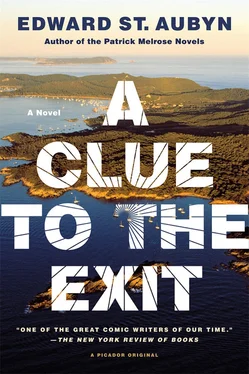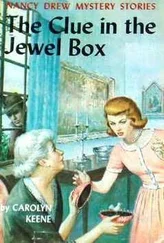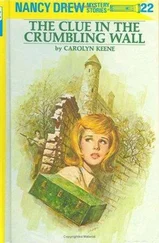Walking here from her apartment, I saw aqueducts of rainbows arching down the polluted avenues. I was ready to die because I was entirely fulfilled, and I was ready to live because I was entirely ready to die. I had never felt less indifferent to life or more indifferent to death. This moment could not have occurred at any other moment, nor could it occur again at any other moment. We walked in silence until we had almost arrived, and then Angelique turned to me and said, ‘What a feeling,’ and we kissed on the steps of the casino.
Time may pass quickly when you’re having fun, but when you’re happy it almost stops. Heavily freighted as Cleopatra’s barge, it can’t be expected to flit along. All ideas and all impressions are accepted by a mind with no motive to shut down. The more conscious I am, the slower time moves. The toll is that I have to stay conscious of death, but if I insisted on ‘having fun’ instead, I would hurtle down a wall of ice towards the very thing I was trying to forget. Standing on the steps of the casino, I thought of saying to Angelique that if we want to slow down the approach of death we must entertain it ceaselessly, but she knows that already; it’s only thanks to her that I’m realizing it at all.
As I begin to experience more freedom, the definition of what it is changes. Freedom is always what I don’t have, because it refuses to be possessed. It may have a ‘field’, though, in which I can learn to spend more time, and for that I can never thank Angelique enough.
I suppose I’ll have to burden my characters with more ruminations on this subject. I need to place my own feverishly textured sense of time in some scientific framework other than hallucination. Fiction, of course, textures time in its own way and superimposes further layers of elasticity and roughness. One character can assess the meaning of her entire life, while another, apparently caught in a world of molasses, just manages to light a cigarette during the same period. Dialogue gives us a bracing sense of honesty because it appears to take place over the same duration as the rest of life. The characters would take as long to speak what they say outside a book as they do within it. On the other hand, we are reading and not listening and, with any luck, what they have to say is less diffuse than most conversation, and therefore artificially compressed.
So, what am I going to do with these characters of mine? It might not be implausible for their train to break down at Didcot. If it speeds its way to London uninterrupted, they only have fifty-five minutes to solve the riddle of consciousness, an unfair pressure to put on any conversation.
I’ve just seen my darling Angelique collect a stack of 100,000-franc counters. That means that I have a while before we go back to her apartment. It’s tempting to eliminate dialogue from the next section of On the Train , to ruffle the smooth surface of equal duration, to plunge into a speculating or remembering mind while the rest of the world achieves almost nothing.
‘We can’t already be in Didcot,’ said Patrick.
‘We may not have time to crack the code before we arrive at Paddington,’ said Crystal.
‘We could be going to Vladivostok and still get nowhere if we refuse to look into the heart of the matter,’ said Jean-Paul.
‘And what’s that, monsieur le professeur ?’ said Crystal.
‘Dualism!’ said Jean-Paul.
‘That old chestnut.’
‘Two old chestnuts,’ Jean-Paul corrected her.
‘If we’re going to have two, we might as well have three — a soul as well as a mind and body.’
‘No, no,’ said Jean-Paul, ‘two chestnuts is more than enough, I assure you. My terrible confession is that I am convinced by certain philosophical arguments which dissolve in the light of my own experience, but which I would nevertheless like to resolve in their own terms.’
‘But if the terminology of the arguments is inadequate for your experience, why not chuck it out?’ said Patrick impatiently.
‘Ultimately I do,’ said Jean-Paul, ‘but penultimately I would like to convince some of those who occupy my abandoned positions that they should abandon them as well.’
‘You’re a missionary,’ said Crystal.
‘Yes, I’m afraid so,’ said Jean-Paul, opening his hands in a plea for clemency.
‘I knew a philosopher called Victor Eisen,’ said Patrick, ‘who worked on the problem of identity. Nobody knew better who he could properly be said to be if half his body happened to be replaced by Greta Garbo’s, which it wasn’t, by the way; or his partially damaged brain was transplanted into a robot’s body after three hundred years in a cryogenic vat. His autobiography, on the other hand, is dry and shallow, because he forgot to pay attention to the experience of being alive.’
‘That is not a problem confined to philosophers,’ said Jean-Paul. ‘The question is what attention do we pay to the experience of being alive. Is it necessarily dualistic?’
‘Or troilistic.’ Crystal smiled. ‘You know my woefully simple position on this question, namely, that our perceptions and sensations are indeed dualistic, but that they needn’t be. We can experience non-duality.’
‘Yes, I do know your position,’ said Jean-Paul, bowing to her in the Indian style.
‘I would go further,’ she went on, ‘and say that we should make those peaks of non-dual experience into the ground of our being.’
‘You call that a simple position!’ said Jean-Paul, looking genuinely shocked.
‘And my simple position,’ said Patrick, ‘is that we can make our experience as fragmented as we like, but that it isn’t a flaw in reality, just a fault in the transceiver.’
‘And yet that advances nothing, because we then have to know whether the fault is inherent to the transceiver,’ said Jean-Paul. ‘Is it a dualistic transceiver?’
‘Ladies and gentlemen,’ an announcement came over the system. ‘Due to circumstances beyond our control…’
‘Fucking Didcot,’ muttered Patrick. ‘Why does one always get stuck in Didcot? And in the fog.’
I haven’t been able to write for several days. Not only did Angelique continue to lose money, but she managed to get rid of several million in one evening. She found the place where I used to hide the gambling counters and took a few more million after I had given her the evening’s supply. She was very brazen about it the next day. I almost felt that she wanted to get rid of me, the way one sometimes tries to hasten the unbearable. I argued that I was owed the days that she overspent, and she counter-argued that my job was to stop her gambling all the money at once and that the terms of our contract couldn’t be altered just because I had failed. We started bickering. She became imperious and remote, while I dropped defencelessly into depression.
Although the liver is nerveless, I had been warned to expect some ‘discomfort’ from pressure on the intestines as well as ‘referred liver pain’ under the right shoulder blade. Among the endless medical complications I might expect, the most exotic was the cirrhotic liver’s failure to eliminate the small amount of oestrogen naturally produced by a man, causing my breasts to swell painfully. The prospect of drifting towards a biochemical womanhood was not altogether displeasing, but I couldn’t adjust to the fact that I would only be able to sleep on my back. There would also be ‘magnified mood swings’, ‘blackness’, and ‘impaired memory’ to contend with.
Читать дальше












